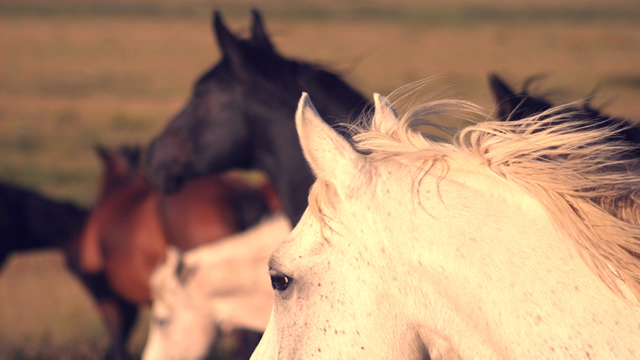Horsemanship Essays
What is Natural Horsemanship?
Written by Clay Wright
This article originally appeared in Eclectic Horseman Issue No.3
We are trying to define what is and isn’t natural; and what does and doesn’t belong in “Natural Horsemanship.” I don’t know who came up with this term, or what their intent behind the term was. However, to truly understand the phrase, we must first understand the words within the phrase.
The word “natural” is derived from the word “nature”. Nature consists of many different opposing forces that create the whole cycle: life and death, growth and destruction, serenity and upheavals, love and violence, splendor and distress, contentment and fear.
On one hand, nature can be very cruel. For example, watch a mountain lion stalk and kill a fawn. It doesn’t make any of us feel very warm and content inside, yet it does make us feel very respectful, very small, and in awe of the whole of nature. Does the fact that the lion (in this case) killed the fawn make him wrong or evil? In nature’s eyes neither the lion nor the fawn is good or evil, or right or wrong. They both play their part and neither one feels sorry for himself or remorse for the other. Life does not exist without death. Growth cannot happen without upheavals. It is all just a cycle; a cycle called nature.
On the other hand, nature is our guiding light; nature is the all-knowing. It is something that a few mere words can’t define, but we are all born with a softness and wisdom deep within ourselves; this is our nature, and every living-breathing creature here on earth is born with it.
The word “horsemanship” broken down is horse-man-relationship. Thus, horsemanship means the horse and the man in the process of building a relationship. This is a very significant meaning that is often overlooked.
The building of any meaningful relationship consists of trust, respect, love, equality, two-way communication, listening, and growing. These things are the backbone and foundation of what we should be trying to develop with the horse. If we look at it as though we are “training” the horse, we lack the depth in understanding we could have in building a relationship with the horse. Putting the horse in a training program is not natural to the horse, but building a relationship is.
“Natural Horsemanship” is a term that can make us feel good about ourselves; it gives us a sense of being right. We think that we are doing things the correct way because we are doing it “natural.” If we are just going through the motions, however, we are still doing things mechanically. We have no feel to offer the horse because we are not feeling our true nature and the horse knows this, so he can’t completely trust us. Whatever it is we are asking of the horse he may do, but he won’t do it as freely as he could if we were to ask him from a place of feeling from our nature; this is something he can understand and respond to in a much softer manner.
A lot of the problems we encounter with our horses come from our lack of understanding our own true nature as well as theirs. We as human beings have stepped so far away from our true nature that many of us can’t even comprehend that we are even a part of nature’s cycle. We see ourselves as something much more important than this. This is something that is very unnatural. If we want to locate and feel nature, there is no better place to start than by doing a little soul-searching deep within ourselves. We can learn about our true nature by observing the horse, for he lives by listening to his nature.
He lives by feel, and feel is an intuitive response encompassing all of our senses to any given situation from moment to moment.
“Natural Horsemanship,” in the way I think of it, is not a method; it is a feel, a way of thinking, and a way of being. If we are to be successful with our horses in a natural way, we must become more aware of what feeling of them means and listen to our own true nature. Throughout the process of developing a relationship, it is helpful to remember that there will be times of contentment and times of upheaval that will envelope all of nature’s cycle. However, if a person is working on building a relationship with the horse while discovering himself or herself, the upheavals will truly be just a time of growth for us as well as for the horse.
This article originally appeared in Eclectic Horseman Issue No.3


